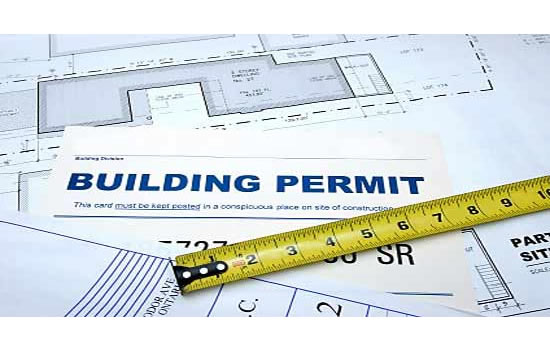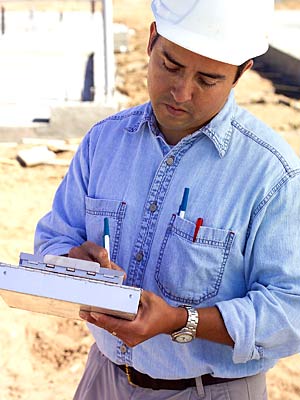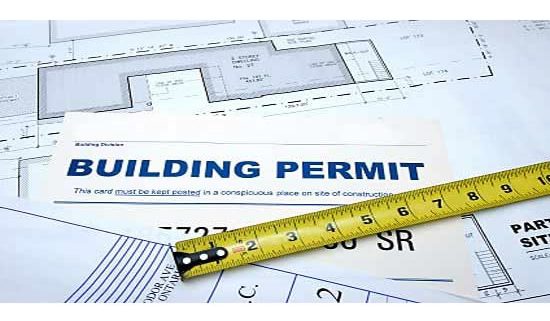I Just Want a Building Permit!
 A building permit is a necessary component of any construction project. Contrary to what you often hear, getting a building permit need not be a painful process. By working with local community officials, you can obtain the necessary permit and follow-up inspections. Your building contractor and architect will help you to facilitate the process so that everything goes smoothly.
A building permit is a necessary component of any construction project. Contrary to what you often hear, getting a building permit need not be a painful process. By working with local community officials, you can obtain the necessary permit and follow-up inspections. Your building contractor and architect will help you to facilitate the process so that everything goes smoothly.
Why do I Need a Building Permit?
Buildings that are substandard can lead to dangerous conditions, such as fires due to poor electrical wiring, sickness due to poor plumbing, or injury due to poor structural design. Community officials use the permitting process to ensure that building projects comply with building/zoning codes and to safeguard the public health, safety, and welfare. Sometimes this also includes safeguarding the appearance of the community or historic districts, if the town has an appearance review board. Other stakeholders, such as lenders and insurers, will also want the assurance that a building permit offers.
A Building Permit is Just the Beginning
A building permit should be obtained prior to beginning construction. This may seem like a no-brainer, but people are sometimes not aware of the order of things. When you apply for a permit, you are telling others what you are planning to do, so everyone can weigh in on any issues your project may cause. Once this process is complete and the building/zoning officials are satisfied, a permit is issued and your contractor can get started.
The permit is good for a year typically, but can be extended at the official’s discretion. Building officials will visit the site during construction to evaluate the progress. The work cannot progress without the permission of the building official. For instance, the underground piping cannot be covered up until the building official inspects it. The inspection process takes place many times over the course of the project.
Even if you have obtained a building permit, you are not free to occupy the built space until a certificate of occupancy is granted. Knowing all of this, you can better understand the value provided by a general contractor who coordinates the process.
Tips for a Hassle-Free Building Permit Process
- Work with a licensed architect to develop plans and specifications for your building project. The architect must be licensed in the state in which the construction is taking place.
- Submit the architect’s drawings and specifications to the local zoning/building officials. Fill out the required forms and pay the required fee. Fees can vary by location, but are usually based on the estimated construction cost. The permit may require changes or undergo additional review which may trigger additional fees.
- Work with your architect to reply promptly to the building/zoning officials’ questions, in order to avoid delays. Code officials have a responsibility to enforce the code as it is written. Handle this process professionally – be positive and cooperate with code officials to achieve your goal.
 Get on the meeting agenda when a public meeting/presentation is required. Many communities offer public meetings once a month to make approvals/decisions on building projects. If you miss the application date for the next meeting, you will need to wait until the next month to have your project evaluated/considered.
Get on the meeting agenda when a public meeting/presentation is required. Many communities offer public meetings once a month to make approvals/decisions on building projects. If you miss the application date for the next meeting, you will need to wait until the next month to have your project evaluated/considered.
- Prior to the public meeting, submit the required documents to appearance review and other commissions. Each commission will have its own list of requirements and this may mean you need to prepare several sets of documents and attend several meetings.
- An experienced presenter, such as your architect, should represent your project to the committee at public meetings. They are familiar with the process and can respond to committee questions and concerns.
- Once a permit is issued, it needs to be prominently displayed at the construction site. Inspectors will sign the permit as portions of the work are completed. The paper permit serves as a record of project progress.
- Inform community officials as to project progress so they can inspect the work and give approvals to proceed.
- Wrap up final details on the project in order to close out the construction permit and obtain an occupancy permit.
- Be realistic about the time it takes to get a permit. It is normal for the permitting process to take 1 to 6 months prior to starting construction, so build that time into your schedule.
Give us a call if you have any questions: 847-247-0303. Here is some additional information about obtaining permits in Milwaukee, Chicago, Libertyville, and Lake County, IL.



